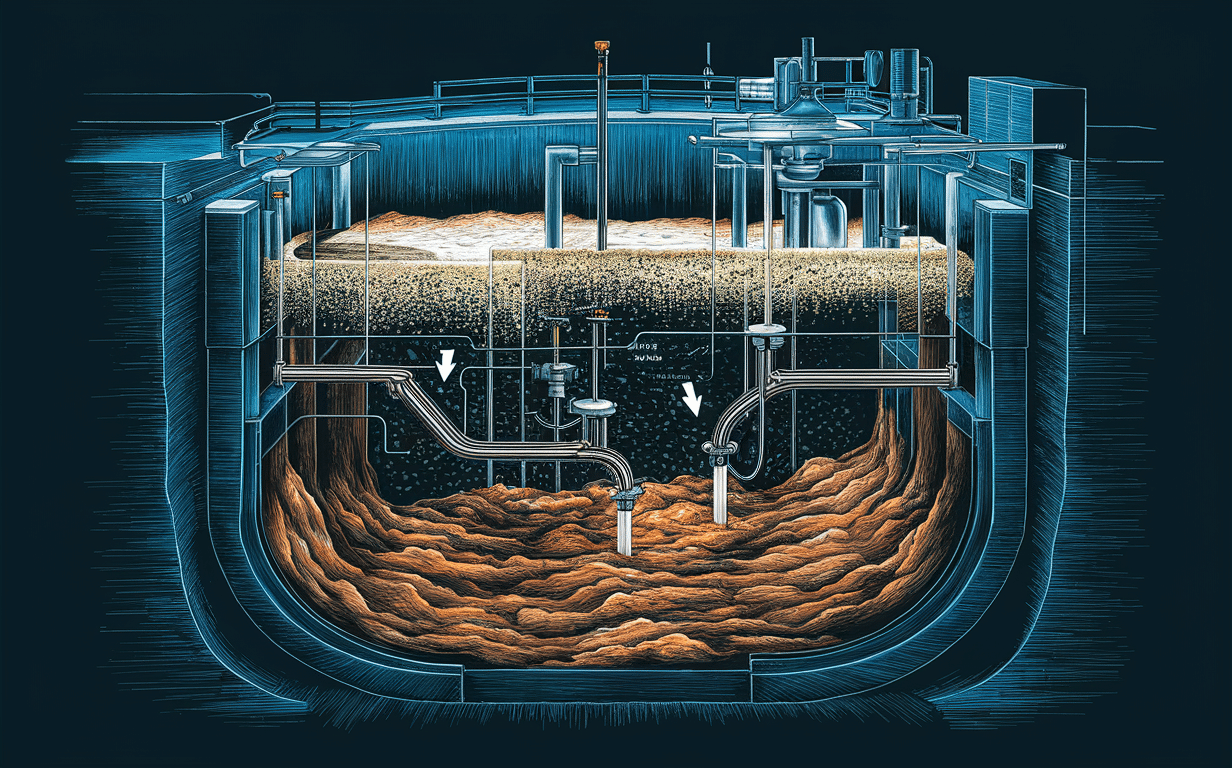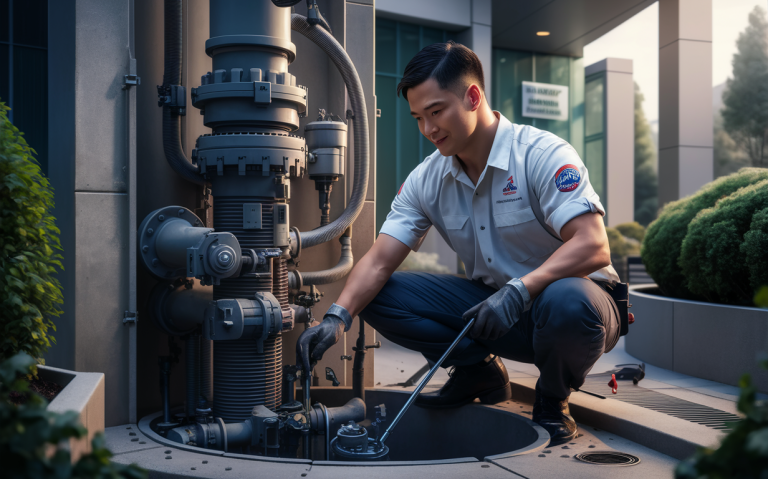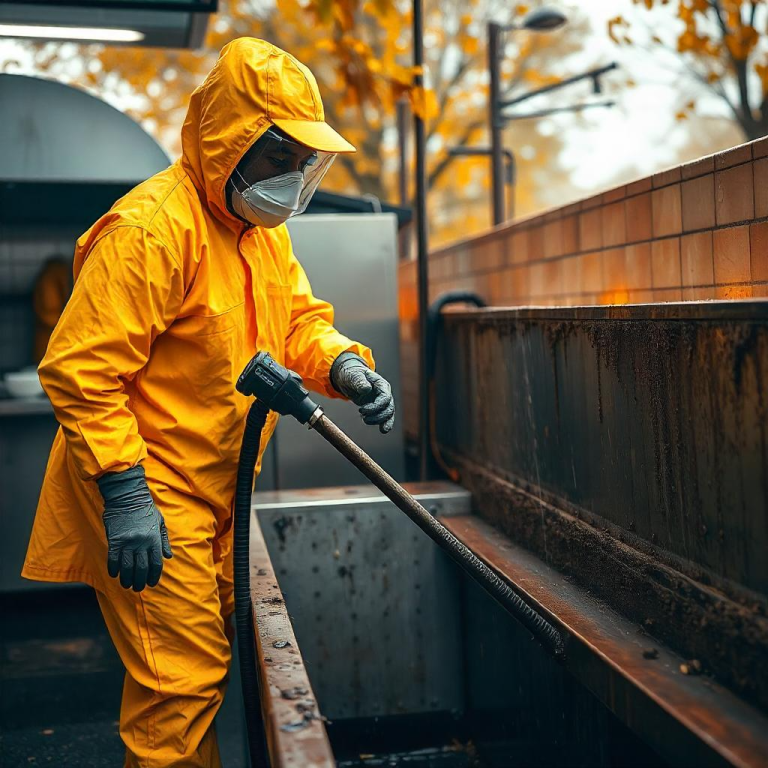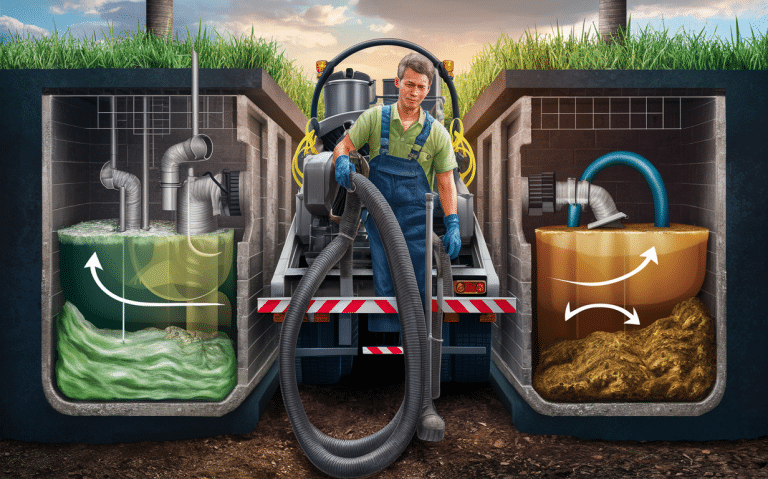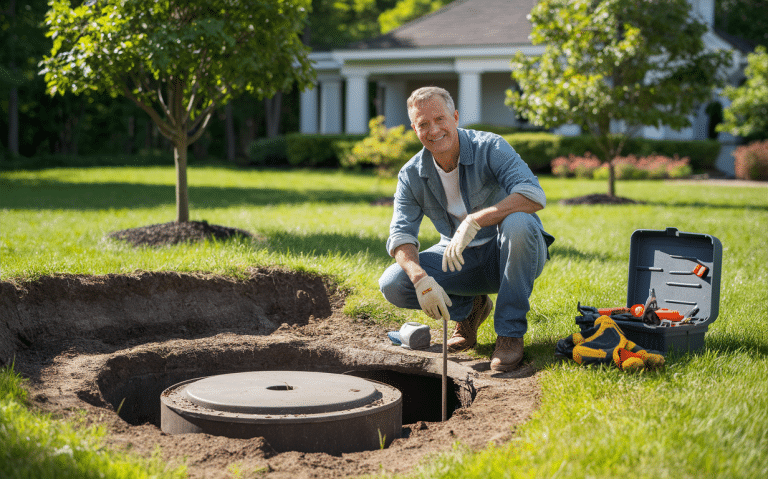Effective Tips for Removing Sludge and Scum Buildup
Removing sludge and scum buildup from your septic tank is critical to maintaining an efficient and effective sewage system. Ignoring this maintenance can lead to severe issues, including backups, foul odors, and costly repairs.
In this article, we will share practical tips and techniques for removing sludge and scum buildup to ensure your septic system runs smoothly.
Key Takeaway
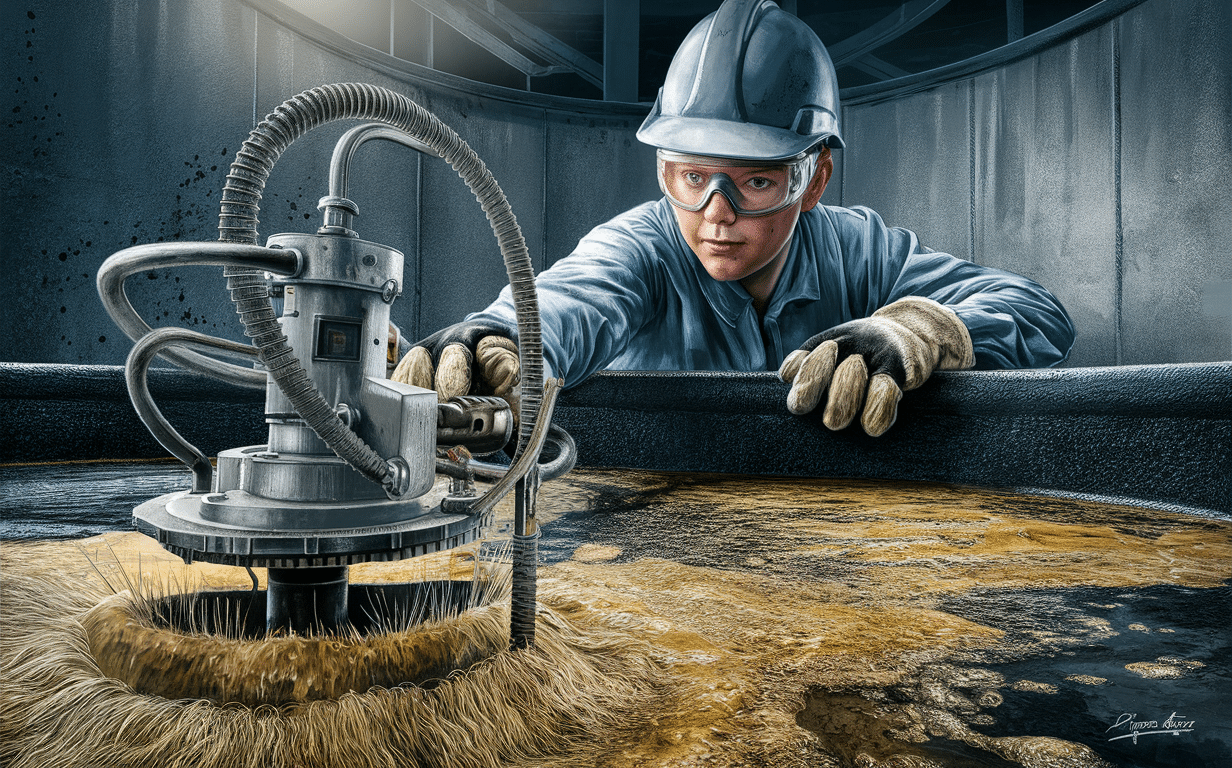
- Sludge and scum are byproducts of waste breakdown in a septic system.
- Regular septic tank pumping is crucial to prevent buildup.
- Biological additives can help maintain a healthy bacterial balance.
- Proper waste disposal practices can minimize sludge and scum accumulation.
- Water conservation reduces the load on your septic system, preventing quick buildup.
Understanding Sludge and Scum in Septic Systems
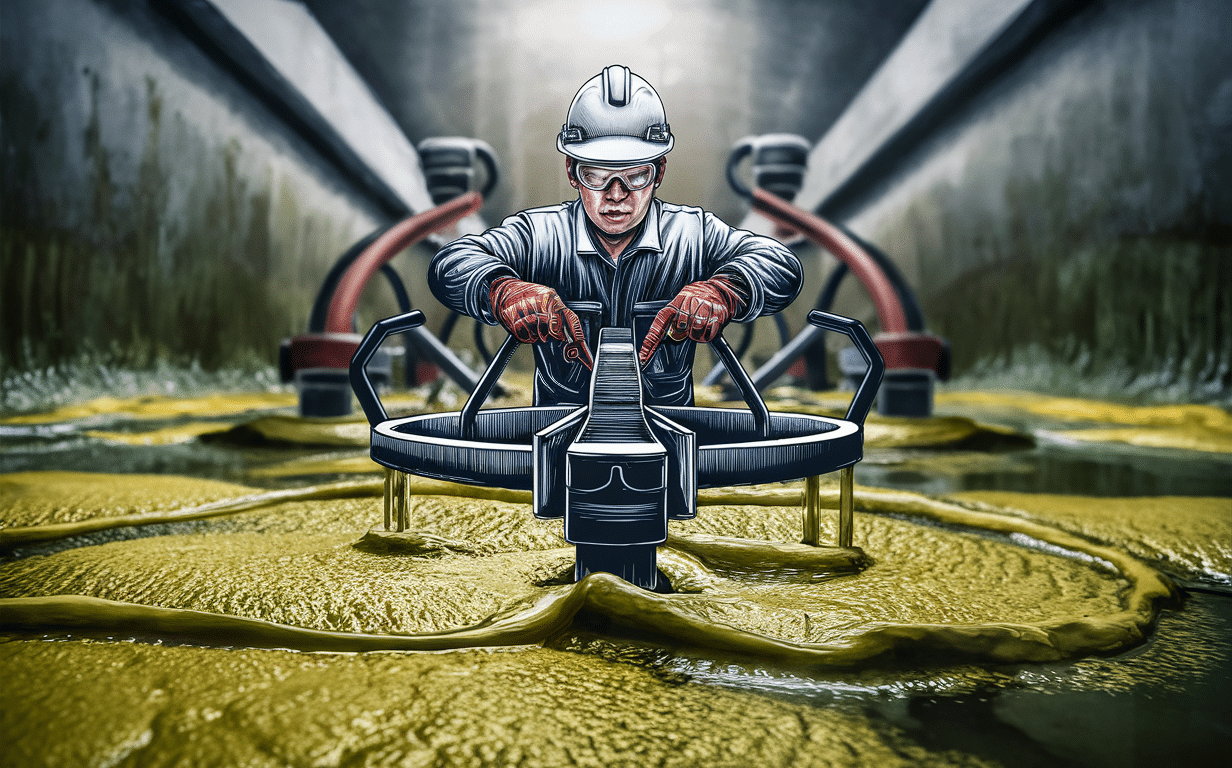
What Are Sludge and Scum?
In a septic tank, wastewater separates into three layers: scum, liquid effluent, and sludge. Scum, which floats on the surface, consists of oils and fats. Sludge, found at the bottom, is composed of solid waste that settles. The liquid effluent in the middle layer flows out to the drain field.
The Importance of Regular Maintenance
Regular maintenance, including pumping and inspections, is vital to prevent sludge and scum from overwhelming your septic system. Without routine care, the buildup can lead to blockages, system failures, and environmental contamination.
6 Effective Methods for Removing Sludge and Scum Buildup
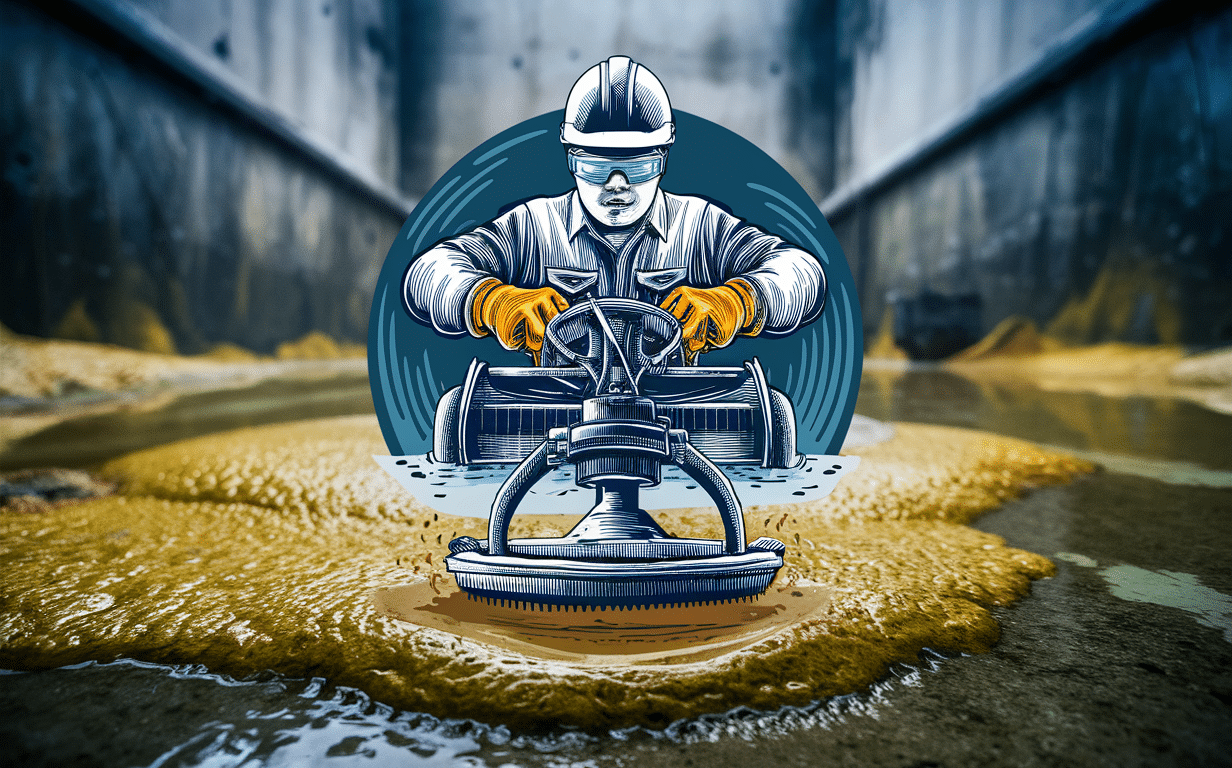
Routine Septic Tank Pumping
One of the most effective ways to remove sludge is through regular septic tank pumping. Experts recommend pumping every 3-5 years, depending on the tank size and household usage.
| Tank Size (gallons) | Recommended Pumping Interval |
|---|---|
| 1,000 | Every 3 years |
| 1,500 | Every 4 years |
| 2,000 | Every 5 years |
Biological Additives
Biological additives can help break down solid waste in the tank, making it easier to manage sludge levels. These additives contain enzymes and bacteria that accelerate the decomposition process.
Septic Tank Agitation
Using a septic tank agitator can help mix the tank contents, promoting better breakdown of sludge. This technique should be performed by professionals to avoid damaging the tank.
Strategies for Reducing Scum Buildup
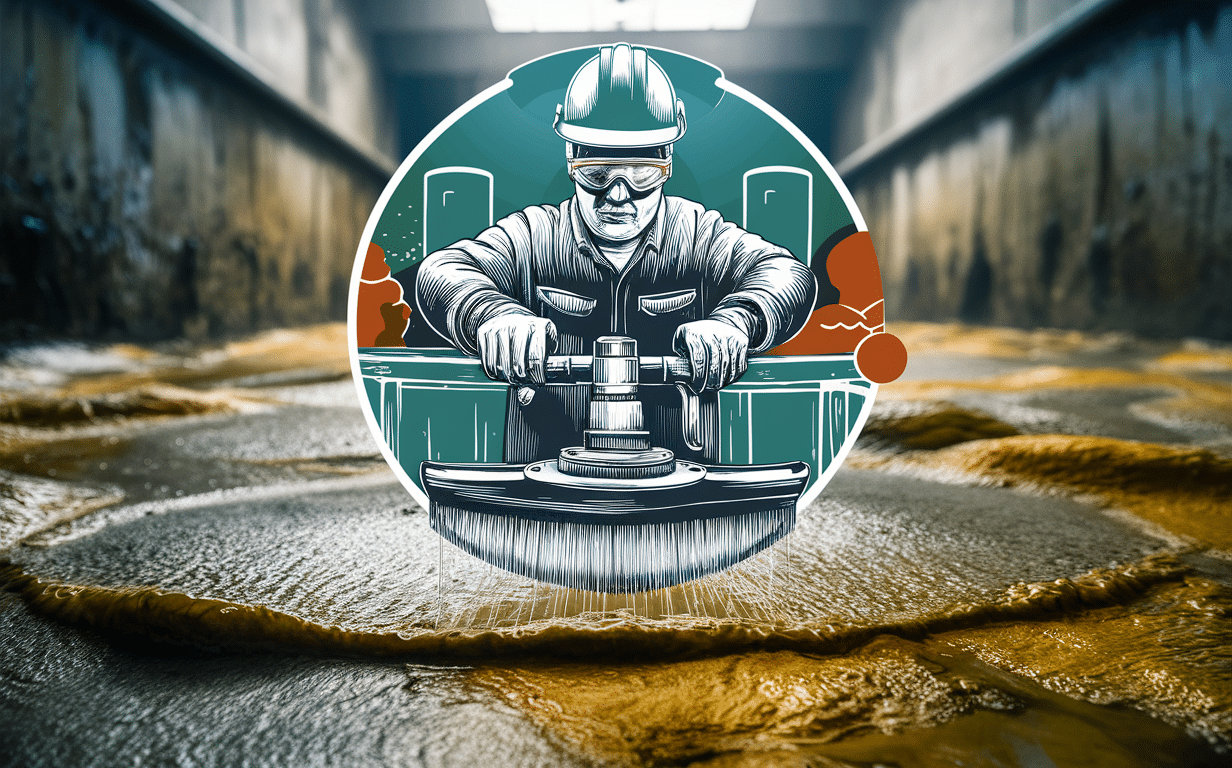
Proper Waste Disposal
Avoid flushing non-biodegradable items, oils, and fats down the drain. These materials contribute significantly to scum buildup and can clog your system.
Grease Traps
Installing grease traps for your kitchen sinks can capture fats and oils before they enter the septic system, reducing scum formation.
Regular Inspections
Regularly inspecting your septic system allows you to identify and address scum buildup before it becomes a significant problem.
Water Conservation Practices
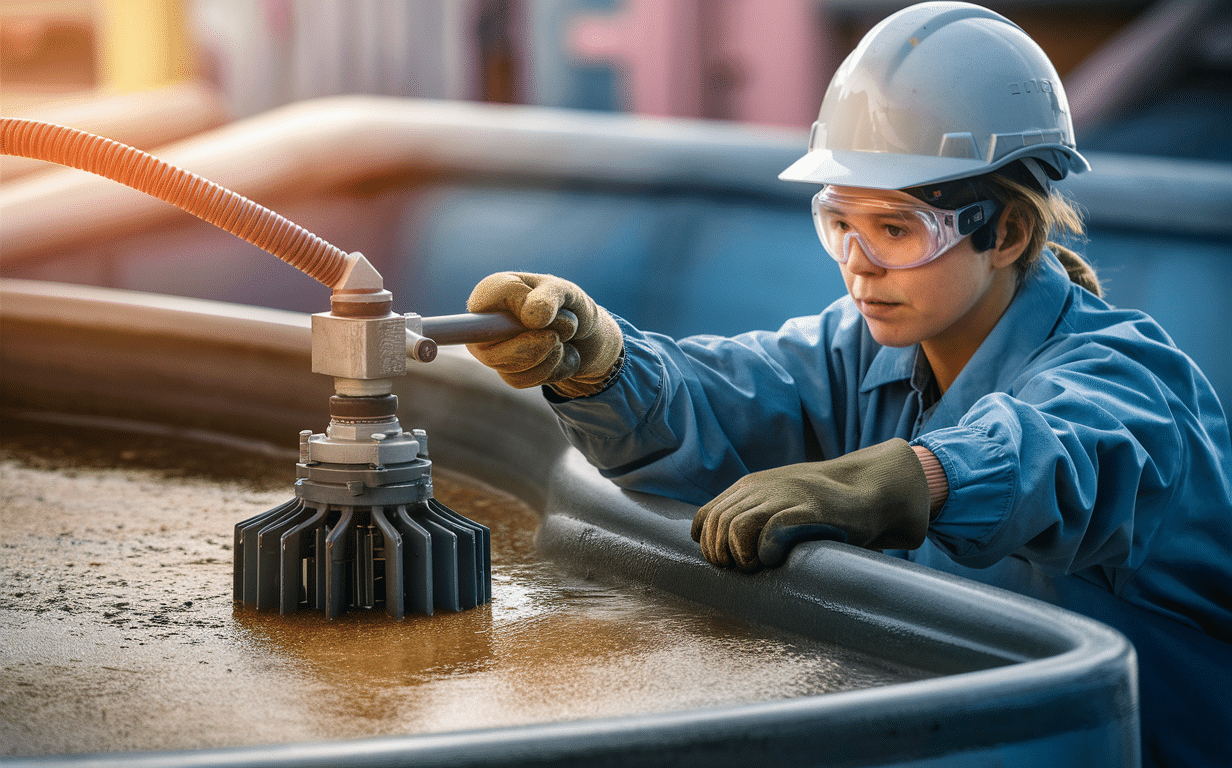
Reducing Water Usage
Minimizing water usage can extend the life of your septic system. Simple practices like fixing leaks, using water-efficient fixtures, and spreading out laundry loads can make a big difference.
| Water-saving Tips | Potential Savings |
|---|---|
| Fixing leaks | Up to 200 gallons per month |
| Installing low-flow fixtures | Up to 50% reduction in usage |
| Spreading out laundry loads | Reduces water surge into the system |
Mindful Landscaping
Planting grass over the drain field instead of trees or shrubs prevents root intrusion, which can damage your septic system and lead to scum and sludge problems.
How to Know When Your Septic Tank Needs Pumping

Warning Signs
- Slow drains: If sinks, showers, and tubs drain slower than usual, it might indicate a full septic tank.
- Bad odors: Foul smells around your septic system or inside your home are a red flag.
- Pooling water: Excessive water around the drain field signifies that your septic tank might be overflowing.
Professional Inspections
Hiring a professional to inspect your septic system can provide a clearer picture of when you need pumping. They can measure sludge levels and assess the condition of your tank.
The Role of Septic Tank Filters

Importance of Clean Filters
Septic tank filters prevent large particles from entering the drain field. Keeping these filters clean ensures efficient wastewater treatment and reduces the risk of clogs.
How to Clean Filters
- Turn off the septic pump: Ensure safety by disconnecting power to the pump.
- Remove the filter: Carefully take out the filter from the outlet baffle.
- Clean the filter: Use a hose to wash away trapped debris. Avoid using harsh chemicals that could harm beneficial bacteria.
- Reinstall the filter: Place the clean filter back into the outlet baffle.
Advanced Techniques for Sludge Management
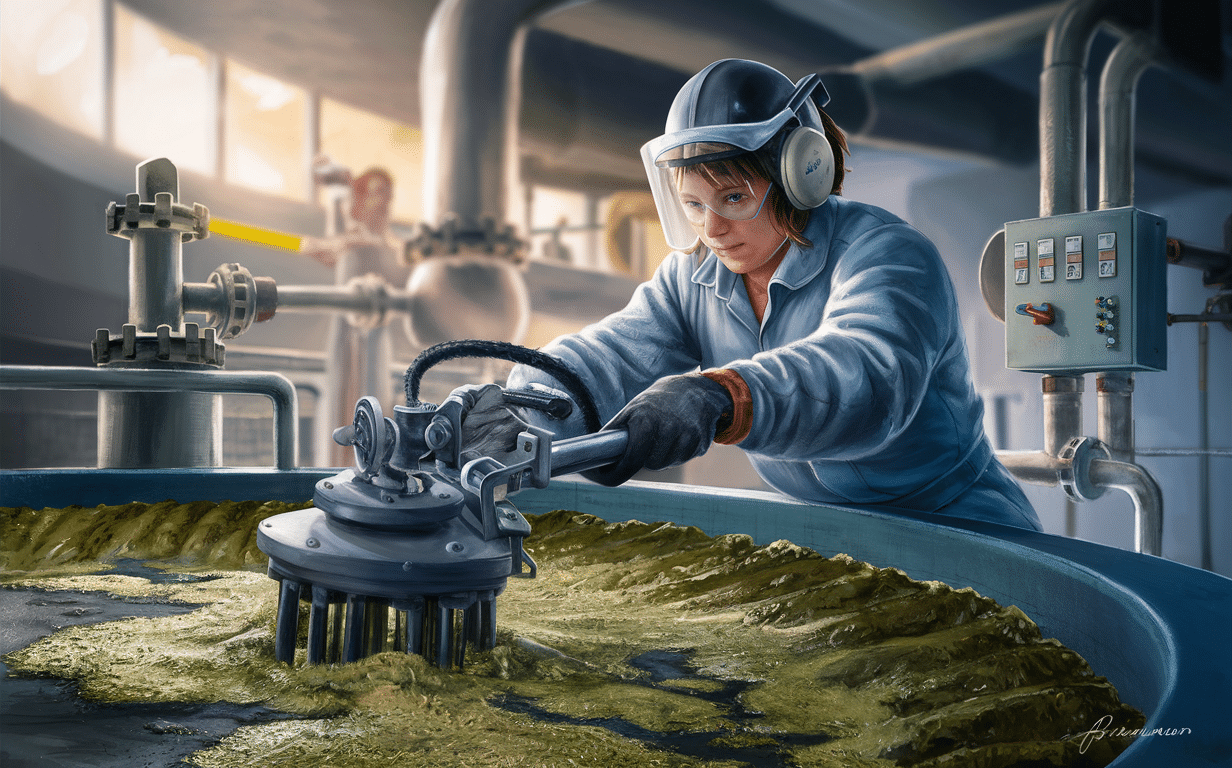
Aerobic Treatment Units (ATUs)
ATUs introduce air into the septic tank, promoting aerobic bacteria growth, which breaks down waste more effectively than anaerobic bacteria in traditional systems.
Solids Separation Systems
These systems use screens or centrifuges to separate solid waste from the liquid effluent, reducing sludge buildup and extending the time between pumpings.
- Sludge and scum buildup in swimming pools can be a common problem, but there are effective tips to remove them. According to Pool and Spa Marketing, scum is typically caused by a lack of proper filtration or chemical imbalance in the water.
- To remove scum, the Pool & Hot Tub Alliance recommends brushing the pool walls and floor with a pool brush and vacuuming the pool to remove the debris
- For heavy scum buildup, the Water Quality & Technology magazine suggests using a scum vacuum or a flocculant to help remove the scum more effectively
- Sludge, on the other hand, is typically caused by a buildup of organic matter in the pool. The National Swimming Pool Foundation advises draining and refilling the pool every 3-5 years to prevent sludge buildup
- If draining and refilling is not an option, the Pool & Spa News suggests using a pool vacuum with a bag or a flocculant to help remove the sludge from the pool
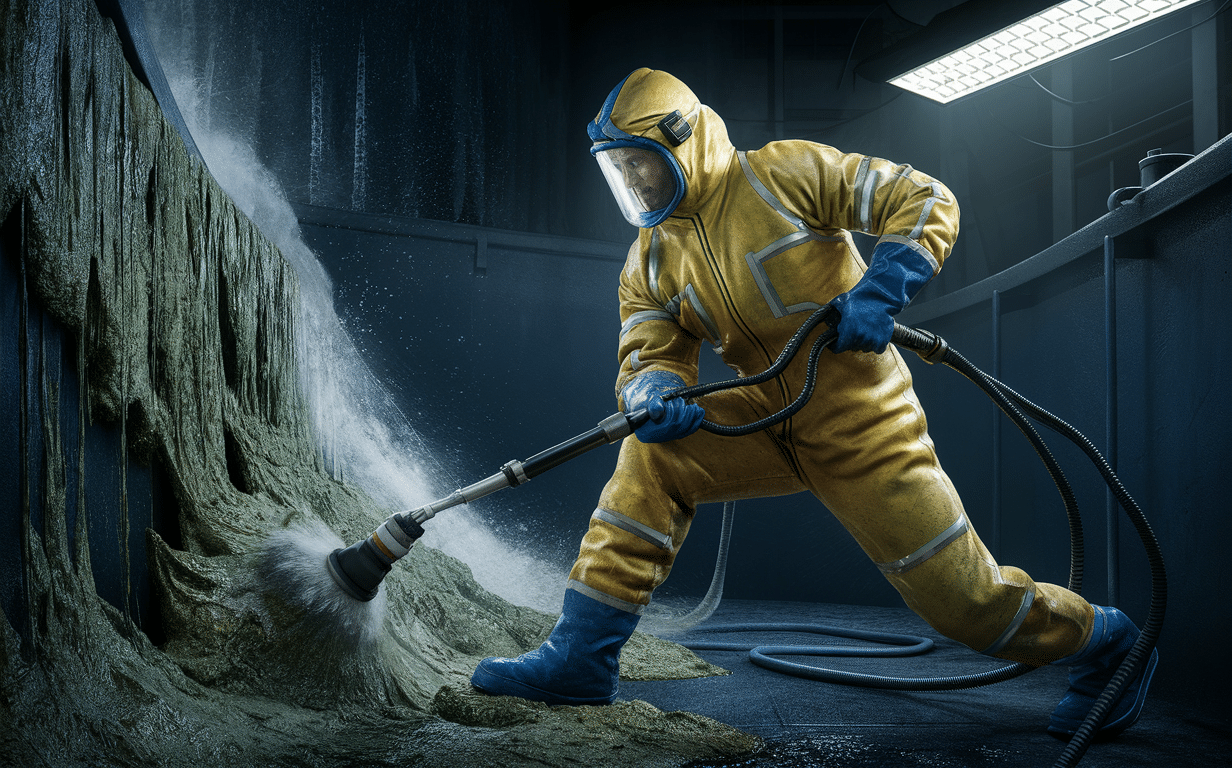
Conclusion
Maintaining your septic system by removing sludge and scum buildup is essential for preventing costly repairs and ensuring effective wastewater treatment.
Regular pumping, proper waste disposal, water conservation, and advanced treatment methods can keep your system running smoothly for years to come. For professional assistance with your septic system, contact United Sewer & Septic today.
Septic System Maintenance Tips
- Schedule regular septic tank pumpings.
- Use biological additives to enhance waste breakdown.
- Install grease traps to reduce scum buildup.
- Conserve water to minimize septic system load.
- Conduct routine inspections and clean filters as needed.
By following these practices, you can maintain a healthy septic system and avoid the headaches associated with sludge and scum buildup.
For expert septic and sewer services in Orange County, Sullivan County, and Rockland County, trust United Sewer & Septic to keep your system in top condition. Contact us today for more information or to schedule an inspection and get your FREE estimates!

